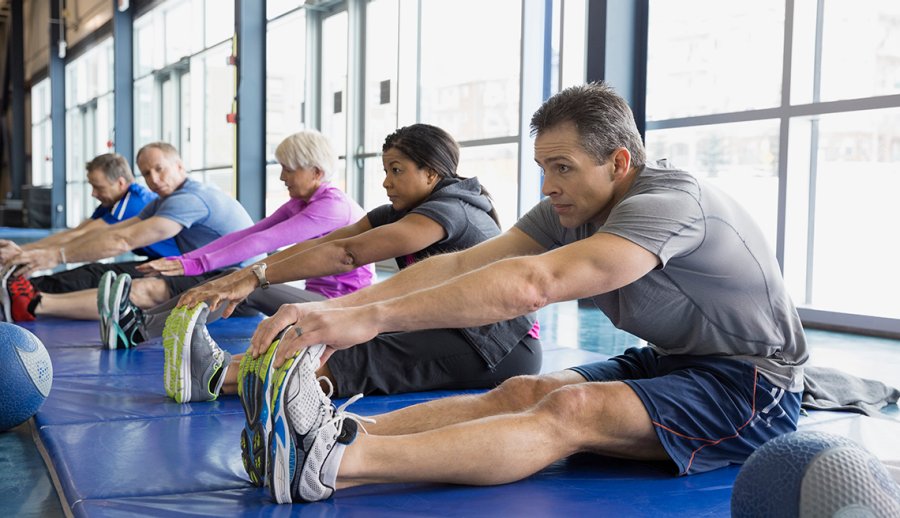Increasing Longevity and Fending off Chronic Disease ... Reasonable Exercise Protocols
"The key findings from this review are: (1) male and female elite athletes live longer than the general population; (2) male athletes have a lower incidence of cardiovascular disease and cancer mortality than the general population; (3) power sport athletes' all-cause and cardiovascular disease mortality were not significantly different to the general population; (4) endurance athletes' cancer mortality was not significantly different to the general population.""Former athletes smoke less, drink less and engage in more long-term physical activity than the general population, all of which significantly contribute to cancer risk and mortality."U.K. research team
 |
| Nicole Forrester, seen here competing at the 2008 Summer Olympics in Beijing, didn’t start high jumping until she was 18 years old. THE CANADIAN PRESS/Ryan Remiorz |
"Aging is a natural and complex physiological process influenced by many factors, some of which are modifiable. As the number of older individuals continues to increase, it is important to develop interventions that can be easily implemented and contribute to “successful aging”. In addition to a healthy diet and psychosocial well-being, the benefits of regular exercise on mortality, and the prevention and control of chronic disease affecting both life expectancy and quality of life are well established. We summarize the benefits of regular exercise on longevity, present the current knowledge regarding potential mechanisms, and outline the main recommendations. Exercise can partially reverse the effects of the aging process on physiological functions and preserve functional reserve in the elderly. Numerous studies have shown that maintaining a minimum quantity and quality of exercise decreases the risk of death, prevents the development of certain cancers, lowers the risk of osteoporosis and increases longevity. Training programs should include exercises aimed at improving cardiorespiratory fitness and muscle function, as well as flexibility and balance. Though the benefits of physical activity appear to be directly linked to the notion of training volume and intensity, further research is required in the elderly, in order to develop more precise recommendations, bearing in mind that the main aim is to foster long-term adherence to physical activity in this growing population".Science Direct
 |
| Getty Images |
There are studies that suggest a too-rigidly focused (extreme) attitude on exercising may compromise the protective effect of physical activity on heart health. Overdoing it, leading to an opposite health effect than that anticipated. Proving that old adage that moderation is the key to all things leading to success; known as the golden mean. It has an ancient lineage; well known for thousands of years that any type of extremes lead to malfunction of outcome. So how much exercise is too much exercise? No matter who you ask, the answer won't be forthcoming.
It's a matter of knowing your limits; personal discretion.
As in: listen to your body, pay attention, be mindful of its messages. These are studies suggesting a decrease among endurance atheletes of health-protective benefits relating to overtraining of athletes, over-taxing the heart, depressing the immune system, increasing risk of injury and negatively impacting mood and sleep patterns. Long-term health of those overstretching their limits in physical exertion may lead to negative impacts.
A team of researchers fromt the United Kingdom set out to discover some truths about the relationship between chronic intense exercise and longevity; whether some physical activities or sports can offer protection and those that may not. They compared all-cause mortality and cardiovascular and cancer-related deaths of elite athletes as opposed to those issues linked to recreationally active counterparts.
 |
24 studies with a data set totalling 154,033 athletes formed part of the review basis. The study group was divided into three groups: endurance (middle- and long-distance runners, . rowers, cross-country skiers, ice skaters and Tour de France cyclists); team sport (football, baseball, soccer, hockey and basketball); and power athletes (boxers, wrestlers, weightlifters, and track and field). The conclusion was that elite male and female athletes were linked with a 31 and 49 percent lower risk of all-cause mortality respectively, as compared to members of the population who are less physical active.
Not all sports and activities however, offer a similar level of long-term health benefits. The greatest boost in longevity fell to male endurance athletes; and in comparison to the general population, marathon runners, Tour de France cyclists and Olympians competing in endurance sports added four, eight and six years respectively to their life expectancy. To a lesser degree team sport athletes benefited as well from a bosft in life expectancy.
Superior cardiovascular fitness reflecting better heart health. Which explains why endurance athletes live longer than team sport and power athletes and was resposnsble for much of the added longevity. It was recognized by the researchers as well, that other lifestyle habits also render significant contributions to the longevity of elite athletes. The educated hypothesis that lifestyle is a powerful predictor of overall good health has a pedigree.
The review of elite athletes in this particular study reflects that recreational athletes and ordinary people alike benefit from the awareness that a healthy, active lifestyle has vital consequences in extending longevity and warding off chronic disease. A bit of a conundrum raises itself where researchers cannot quite point to lifestyle or training as having the superior advantage, leaning on the impression that it is a combination of both that confers the greatest rise in long-term health and overall wellness.
Most people in any given population will never gravitate to the exercise habits of elite athletes, yet they can understand that a greater dedication to regular exercise will result in consequential benefit; ample reason to incorporate more than the recommended 150 minutes of physical activity weekly into a personal commitment. By the simple expedient of focusing on an activity that is personally appealing, commitment to exercise can be assured.
The basic goal being to reach the longevity-increasing benefits of exercise and that requires working at it until it becomes ingrained habit.

Labels: Chronic Illness, Exercise, Healthy Living, Lifestyle Commitment, Longevity, Research

0 Comments:
Post a Comment
<< Home